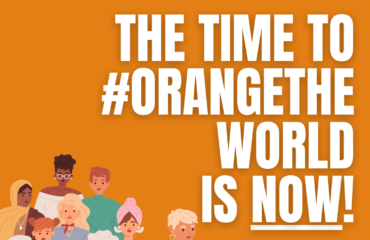Authored by: Mads Menoher, NGO CSW/NY Advocacy & Admin Intern
Research shows that GBV and mental health have a direct correlation. Women who have experienced GBV are more exposed to situations that may put them at a mental health risk. Some common mental health issues that are connected with violence are anxiety, depression, Post Traumatic Stress Disorder, trouble sleeping or eating, and much more.
Both the World Health Organization and the Public Health Agency of Canada consider GBV a global public health issue when it comes to both physical and mental health. Their research found that countries with lower rates of intimate partner violence see a drop in depression, anxiety, and PTSD. Both women and men are likely to have a higher life satisfaction rate in states that implement legislation against GBV. We can see the opposite in countries that do not have preventive measures in place for women who experience violence.
A major issue across the world is that many people who experience GBV do not have access to mental health professionals. With a high number of GBV cases, and a limited number of trained mental health professionals, there is a large gap between those who receive beneficial services and those who don’t.
UNFPA Bangladesh provides a short video explanation of the lack of mental health experts compared to the number of cases of GBV in the country. There’s approximately 1 psychologist per 300,000 people in Bangladesh, and with numbers reaching 73% of women who have reported experiencing violence inside familial relations, this becomes a mental health crisis. With these numbers in mind, it is estimated that psychologists are expected to see over 100,000 cases each year for GBV, and that’s not including psychological cases outside of violence. This is unfeasible, and may explain why violence and mental health issues around the world are continuing to rise.
The severe lack of resources for mental health is damaging to more than just the women who experience GBV. Along with the global satisfaction of life, UNFPA explains that poor mental health will cost the global economy upwards of 2.5 trillion dollars, with it rising to a whopping 6 trillion dollars in 2030. The global mental health crisis impacts everything in our governmental systems, with GBV being one of the main factors in the rise of cases.
Countries like Bangladesh have implemented training programs for officers and officials to engage with women who have been directly affected by GBV to lighten the severity of individual mental health cases. Canadian Women Foundation has provided adequate research explaining how the links to violence and mental health issues are seen in higher numbers in women than men. The organization suggests taking individual initiatives, such as being informed, providing resources, and being a good listener to help tackle the crisis. Although there is still work to be done on the governmental level, by taking the initiative in small steps, action can be taken to leadership.
Resources:



